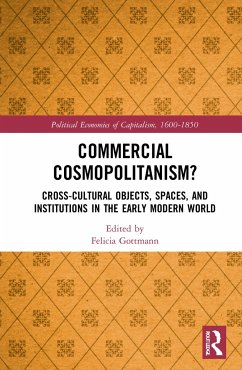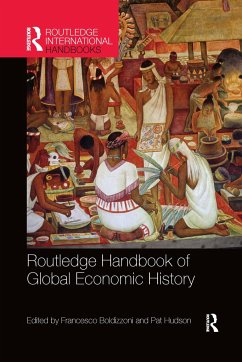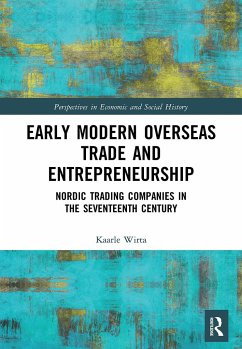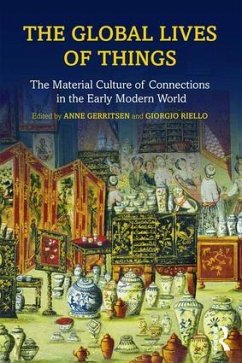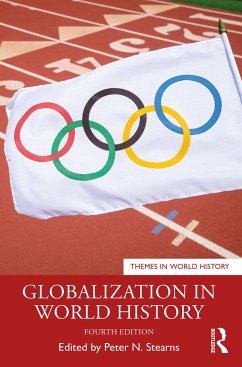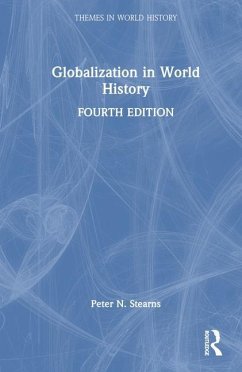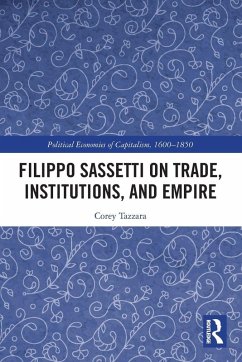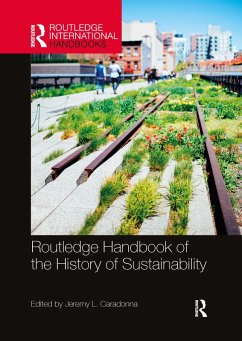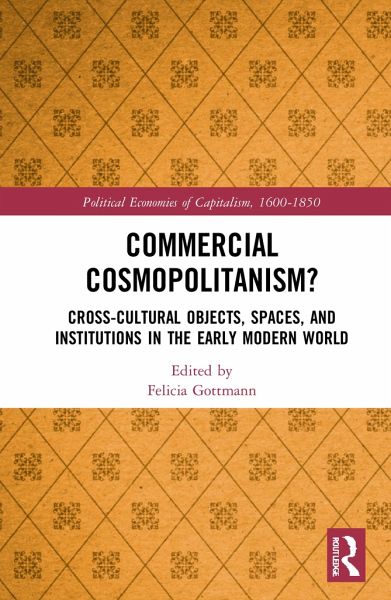
Commercial Cosmopolitanism?
Cross-Cultural Objects, Spaces, and Institutions in the Early Modern World
Herausgegeben: Gottmann, Felicia
Versandkostenfrei!
Versandfertig in 6-10 Tagen
46,99 €
inkl. MwSt.

PAYBACK Punkte
23 °P sammeln!
This book showcases the wide variety of commercial cosmopolitan practices that arose from the global economic entanglements of the early modern period.Cosmopolitanism is not only a philosophical ideal: for many centuries it has also been an everyday practice across the globe. The early modern era saw hitherto unprecedented levels of economic interconnectedness. States, societies, and individuals reacted with a mixture of commercial idealism and commercial anxiety, seeking at once to exploit new opportunities for growth whilst limiting its disruptive effects. In highlighting the range of commer...
This book showcases the wide variety of commercial cosmopolitan practices that arose from the global economic entanglements of the early modern period.
Cosmopolitanism is not only a philosophical ideal: for many centuries it has also been an everyday practice across the globe. The early modern era saw hitherto unprecedented levels of economic interconnectedness. States, societies, and individuals reacted with a mixture of commercial idealism and commercial anxiety, seeking at once to exploit new opportunities for growth whilst limiting its disruptive effects. In highlighting the range of commercial cosmopolitan practices that grew out of early modern globalisation, the book demonstrates that it provided robust alternatives to the universalising western imperial model of the later period. Deploying a number of interdisciplinary methodologies, the kind of 'methodological cosmopolitanism' that Ulrich Beck has called for, chapters provide agency-centred evaluations of the risks and opportunities inherent in the ambiguous role of the cosmopolitan, who, often playing on and mobilising a number of identities, operated in between and outside of different established legal, social, and cultural systems.
The book will be important reading for students and scholars working at the intersection of economic, global, and cultural history.
Cosmopolitanism is not only a philosophical ideal: for many centuries it has also been an everyday practice across the globe. The early modern era saw hitherto unprecedented levels of economic interconnectedness. States, societies, and individuals reacted with a mixture of commercial idealism and commercial anxiety, seeking at once to exploit new opportunities for growth whilst limiting its disruptive effects. In highlighting the range of commercial cosmopolitan practices that grew out of early modern globalisation, the book demonstrates that it provided robust alternatives to the universalising western imperial model of the later period. Deploying a number of interdisciplinary methodologies, the kind of 'methodological cosmopolitanism' that Ulrich Beck has called for, chapters provide agency-centred evaluations of the risks and opportunities inherent in the ambiguous role of the cosmopolitan, who, often playing on and mobilising a number of identities, operated in between and outside of different established legal, social, and cultural systems.
The book will be important reading for students and scholars working at the intersection of economic, global, and cultural history.





